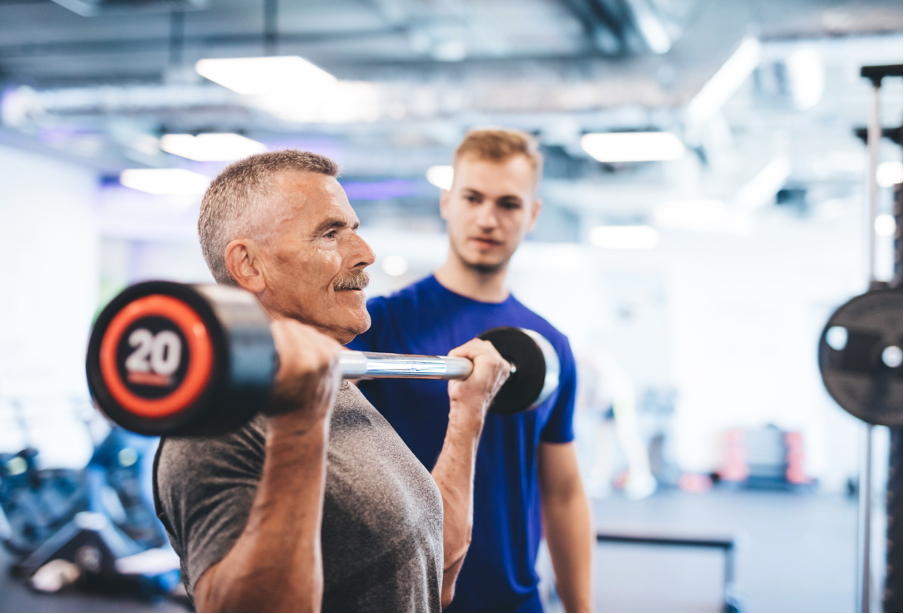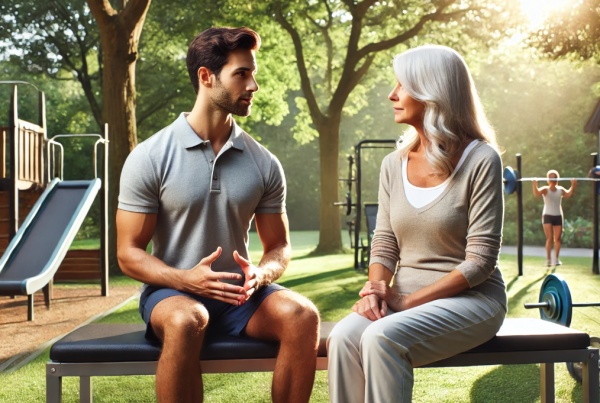It is well known that the world’s population is getting older. The world health organisation predicts that by 2030, one in six people worldwide will be over 60 years old. On one front, people living longer is fantastic and opens up a world of possibilities – more time to pursue and explore education, career pathways and hobbies. On the other front however, those possibilities associated with a longer life depend on one key thing – function.
With the speed that the population is ageing, the systems responsible for keeping older adults functioning are struggling to keep up. But – we are getting there! In Australia specifically exercise physiology is becoming increasingly recognised as an essential part of well-being and healthcare systems for ageing populations. According to the recent workforce report by ESSA, a total of 33.9% of clients working with or referred to exercise physiologists are over 65 years old.
So how exactly does exercise help to maintain function as we age? Let us fill you in:
Reason #1 – Maintain Muscle Mass
One of the most significant changes that occur as you age is the loss of muscle mass. This can lead to weakness and a decline in physical function. It is for this reason that many people find themselves less able to do everything they want (and need) to do as they get older. Exercise physiology can help to maintain muscle mass, or at least slow the decline and enable independent, empowered living for longer! Resistance training especially, has been shown to be highly effective in maintaining muscle mass and function in older adults (1).
Reason #2 – Prevent Falls
Falls are a leading cause of injury and hospitalisation in older adults. Anyone who has experienced a fall, first or secondhand, knows that beyond the hospitalisation itself, falls have an on-going impact on both physical and mental health. Many people become fearful and avoidant after falling which greatly impacts function and quality of life. Exercise physiology can help prevent falls by improving balance, strength, and coordination. Suitable exercise can include Tai Chi, yoga, and resistance training, which can all help improve balance and stability (2).
Reason #3 – Manage Pain
As you age, chronic pain can become a common occurrence (not fair, we know). BUT, through exercise, we can help manage pain by creating exercise programs that address specific pain areas. On top of that, exercise in general also improves pain through hormonal changes such as an increase in circulating endorphins (sore knee who?). If pain is particularly problematic for someone, suitable modes can include low-impact exercises, such as swimming or cycling, which can be easier on the joints (3).
Reason #4 – Improve Social Connection
We recently wrote a blog specifically about how exercise and social connection tie together! This only becomes more and more crucial as we age. Participating in exercise improves social connections by providing opportunities for interaction with family and friends, exercise professionals and strangers (who often become friends!). All of these provide a sense of community and camaraderie, which can help reduce feelings of loneliness and isolation (4).
Reason #5 – Promote Overall Health and Well-Being
Unsurprisingly, the likelihood of developing a chronic disease, such as heart disease, diabetes, and hypertension, also increases drastically as we age. Fortunately research shows again and again that engaging in regular exercise reduces this likelihood. Exercise can also improve mood, reduce stress, and improve sleep quality, all of which can have a positive impact on your overall quality of life (5).
We know that the prospect of getting old can, well, get a little old. . but it doesn’t have to be that way. Think about your body (and function) in the same way you think about your retirement fund. Exercise is a long term investment and you get out what you put in!
Author: Tessa Nielsen
Clinical Exercise Physiologist and Content Creator at Specialised Health
References:
- Peterson MD, Sen A, Gordon PM. Influence of resistance exercise on lean body mass in ageing adults: a meta-analysis. Med Sci Sports Exerc. 2011 Nov;43(11):249-58. doi: 10.1249/MSS.0b013e3181eb6265. PMID: 21407145.
- Sherrington C, Tiedemann A, Fairhall N, et al. Exercise to prevent falls in older adults: an updated meta-analysis and best practice recommendations. NSW Public Health Bull. 2011;22(3-4):78-83. doi:10.1071/nb10056
- Puentedura EJ, Flynn T, Combining manual therapy with exercise for patients with mild to moderate hip osteoarthritis: A case series. J Orthop Sports Phys Ther. 2015 Apr;45(4):319-27. doi: 10.2519/jospt.2015.5346. Epub 2015 Mar 2. PMID: 25723829.
- Breen KJ, O’Connor M, Hewitt J, O’Sullivan M. The effect of exercise on depression and anxiety in older adults: A systematic review and meta-analysis. J Aging Phys Act. 2019 Jul 1;27(4):553-565. doi: 10.1123/japa.2018-0212. Epub
- Warburton DER, Bredin SSD. Health benefits of physical activity: a systematic review of current systematic reviews. Curr Opin Cardiol. 2017 Sep;32(5):541-556. doi: 10.1097/HCO.0000000000000437. PMID: 28696980.
#exercisephysiology #exerciserehab #rehabilitation #lifeinsurance #incomeprotection #ctp #workcover #mobile #mobileexercisephysiology #fatigue #mentalhealth #cancer #musculoskeletal #injury #pain #physio #physiotherapy #Sydney #Brisbane #Melbourne #Adelaide #Auckland #Waikato #BayofPlenty #Wellington #Otago #Christchurch



